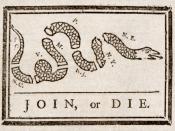Benjamin Franklin's two-hundred year old autobiography and Carol Gilligan's In a different voice both guide us towards a definition and understanding of our own individualism. Ben Franklin's use of the autobiographical style with the (supposed) intent of providing a moral guide book to his 43 year old son is an ingenious one. It allowed him to be as self-aggrandizing as he wanted to be. It also affords him the protection of the morally anointed. He is writing about himself not because he wants to of course, but at the behest of his friends and for the benefit of his son. Carol Gilligan on the other hand offers up a "call to arms" to American women and feminists. In this work she is also alerting all who are willing to listen to the immediate and long term importance of feminism in America. Her use of the psychological study is very shrewd.
Her style lends itself to being viewed as clinical and unbiased as well as being academically grounded. Carol Gilligan began writing this book in the early 1970's, at a time of resurgence in American feminism. At a time when academic acceptability was no doubt foremost in her plan, as so many hearts had already been won in principle, that it was now time to win the minds of America.
Both authors wrestle with the concept of moral education and how it should be applied on an individual basis. They each write about the importance of social roles for men and women. Each of these subjects when applied personally to our lives, plays an important role in the development and understanding of our own personal sense of individualism.
When Ben Franklin talks to us about moral education he does so from a point of view that indicates that he has...


